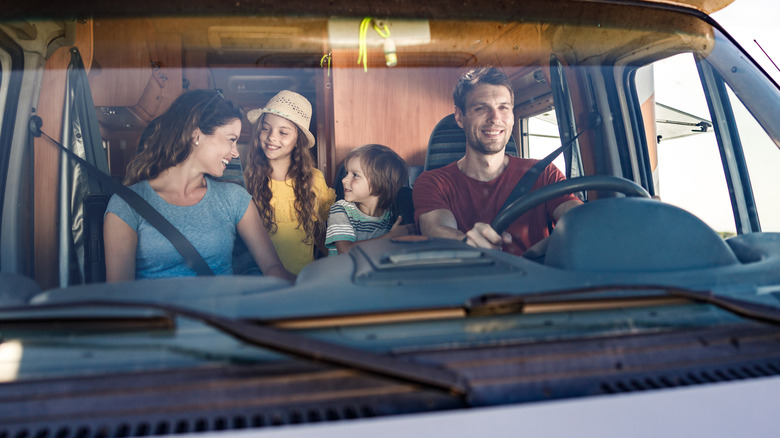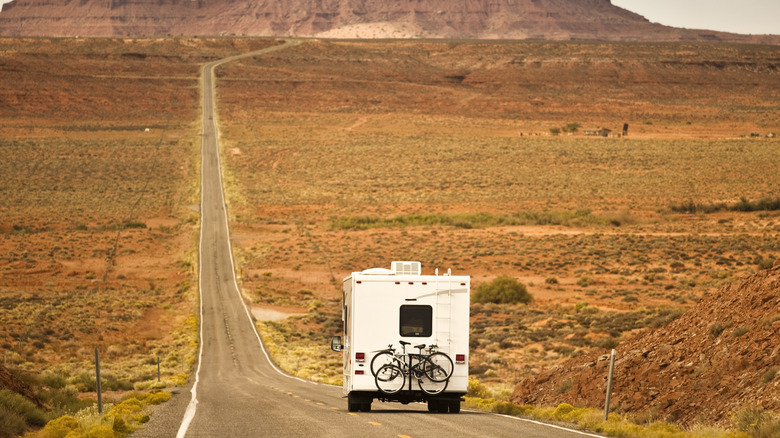Travel Guides Outdoor Adventures Camping
Kylie McCreary
If you’re planning to go camping while on a road trip, you might want to consider renting an RV. But first and foremost, to plan a successful RV trip, you’ll want to make sure you get the right kind of RV. It’s very common for people to not even consider that there are multiple types of RVs. Based on famous movies like “RV” (2006) or “We’re the Millers” (2013), most people will simply think of a large vehicle that includes a living space. However, that’s just one kind of RV. To be specific, that is considered a motorhome.
An RV, or recreational vehicle, is more of an umbrella term for a variety of living spaces that can be driven around. The two main categories of RV that you will likely be offered for rental, are motorhomes (as previously mentioned) and campers. While a motorhome is directly connected to the living space; a camper is a living space that gets towed by a separate vehicle. You should definitely consider what these differences mean in order to select what will best suit your trip.
Campers are easier to drive but motorhomes might be more convenient

Gahsoon/ Getty Images
There are lots of pros and cons to go over before you commit to your rental selection. One of the major distinctions between a motorhome and a camper is that a motorhome is going to be much larger. There are three different classes of motorhomes, each of which vary in size. However, they can be up to 45 feet long; whereas most campers will stretch out to around 20 feet in length.
For this reason, most people find campers easier to drive, but, because of its limited space, a camper is less likely to have a full set of accommodations, like a shower, kitchen, and toilet. If it does have these features, you will have to bring the car to a full stop in order to access them. Alternatively, with a motorhome, you can access the bathroom and kitchen at any point while on the road, which definitely gives it points in the comfort and convenience category.
Cost and safety of a camper vs. a motorhome

Skynesher/Getty Images
This might already be obvious, but a motorhome can typically accommodate far more people than a camper. And while the larger, often more luxurious space of a motorhome costs a little extra, it could be the smarter financial choice depending on how many people you are with. On the larger end of motorhomes, you can sleep up to 10 people. A rental motorhome of this size will likely cost about $200-$500 per night. On the other hand, a camper will likely sleep fewer passengers and cost $90-250 per night. We’ll leave you to do the math. But don’t forget to do it, because there’s a chance that renting campers could cost your group more money.
Regardless of how many people you have with you, if you are traveling with children, a camper may be the safer choice. In a motorhome, the front two seats face forward while other seats in the unit do not. While there should always be enough seat belts for every passenger in the motorhome, if the seat does not face forward, it is in a far less safe position. This is especially true for children. If you do opt to rent a motorhome, you’ll want to ensure that the vehicle has enough front-facing seats for the younger passengers. If your rental company is unable to provide this, choosing a camper, which requires all passengers to ride in the towing vehicle, will likely give you much more peace of mind.

